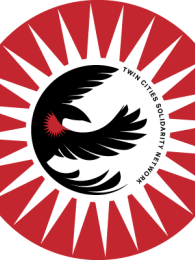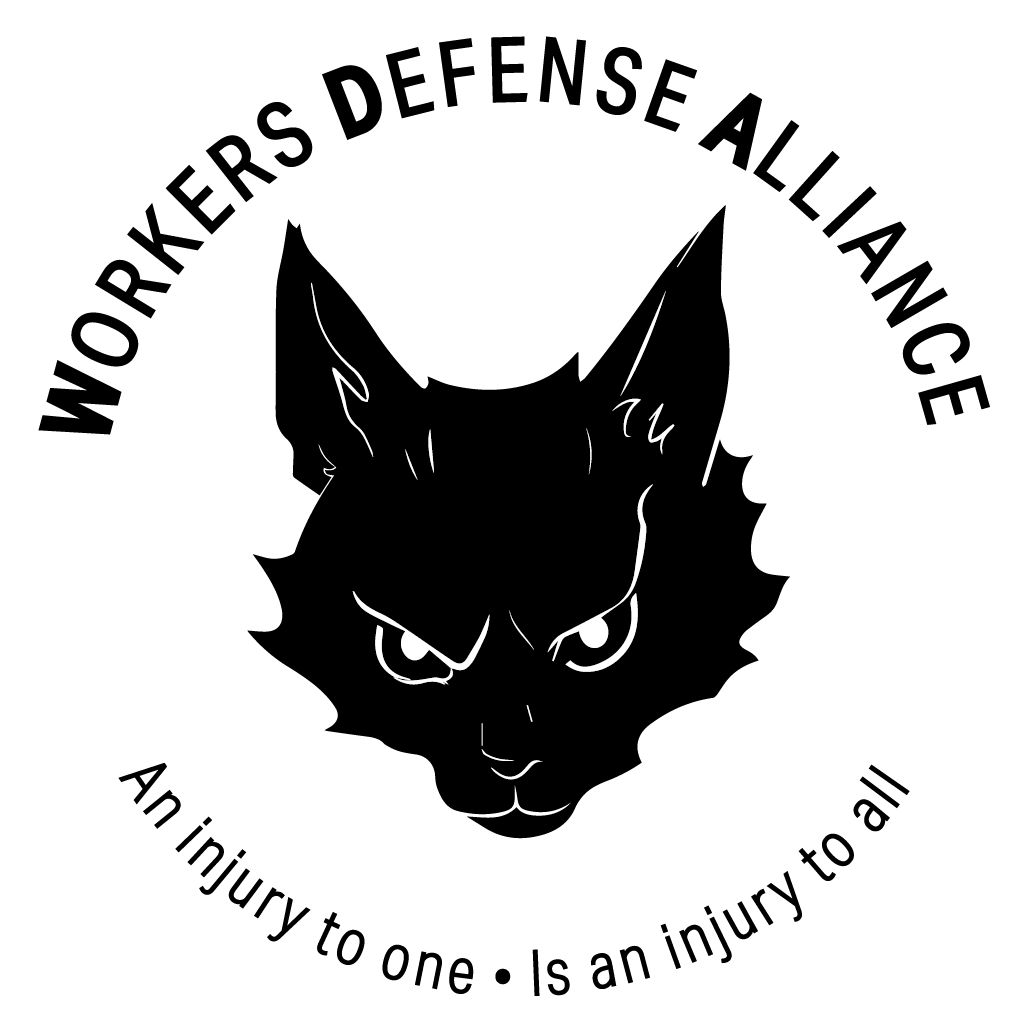
Twin Cities Solidarity Network (TC SolNet) is mutual defense group of workers and tenants. We deal with problems with landlords and bosses, and also help people organize and strengthen unions and tenant associations. We are affiliated with the Twin Cities Worker Defense Alliance, a network of groups aiding one another in anti-authoritarian, abolitionist, working class organizing.
SolNet on Twitter
SolNet on Facebook
SolNet Website
Email us at: tcsolnet@protonmail.com
Our Work
The SolNet's central aim is to help workers organize together for our mutual defense- and in doing so, grow a militant and democratic current in the labor movement, helping to reverse decades of declining working class power. We believe that by organizing around our workplaces and our housing situations, and by unlocking the power of collective direct action, working class people can build the power to defend ourselves from exploitation and abuse by bosses and landlords, and take power over our work, housing, and lives. The Solidarity Network organizes in five main ways.
Industrial Councils, Tenant Councils
Workers and tenants are strongest when we’re organized with the workers in our same workplace or industry, or with the other tenants in our neighborhood or under the same landlord. The main way the Solidarity Network organizes, is by forming these councils of workers to take on fights in their industry or neighborhood- either organizing and building a committee in their own workplace or apartment, or helping other workers take on fights when those fights arise. As we help people work through their confrontation with a boss or landlord, we also help them think through what it would take to organize coworkers and neighbors- growing the networks and growing our power together. Our industrial councils are open to workers across their given industry, regardless of union membership.
Worker and Tenant Defense
We back up workers, in any industry, who are fighting to reclaim stolen wages, enforce workplace safety, fight harassment and discrimination, or any other conflict with their boss. We help tenants who are facing unfair evictions, rent hikes, unrepaired utilities, or other housing problems. By stopping bosses and landlords who exploit people, we hope to build worker and tenant power and put landlords and bosses on notice that they can’t get away with mistreating us. We do this through many tactics, mostly focused around direct action. This is often done as part of our ongoing industrial and tenant councils, but we also do this as case work- helping a worker or group of workers who approach us for help.
Strike Support
A strike is one of the most important ways workers confront capitalists, and striking workers are more likely to win if they have the support of other working class people. We are able to intervene in strikes and support rank and file workers. Working with strikers, we can provide a range of support, from direct actions, to copwatch and legal support on picket lines, to raising funds and supplies to help workers endure and win.
Union Democracy
We support workers who are struggling within our unions for greater worker democracy. Using the resources provided by the Association for Union Democracy and our own experience as rank and file members, we help workers navigate the structures of our unions and labor law, so that we have the right to push against concessionary contracts, empower the rank and file to make more decisions over the union, and push for greater inclusion for workers that are being overlooked by the union. We consider pushing for union democracy to be our responsibility as workers who support unions and want to see them strong.
Education
We work to educate ourselves, each other, and our communities about what it takes to struggle and win. This includes studying successful strategies for worker’s rights and housing struggles, and training people in pickets, direct action, organizing, and strategy. We also study labor history, and political and economic thought from a working class stance.
